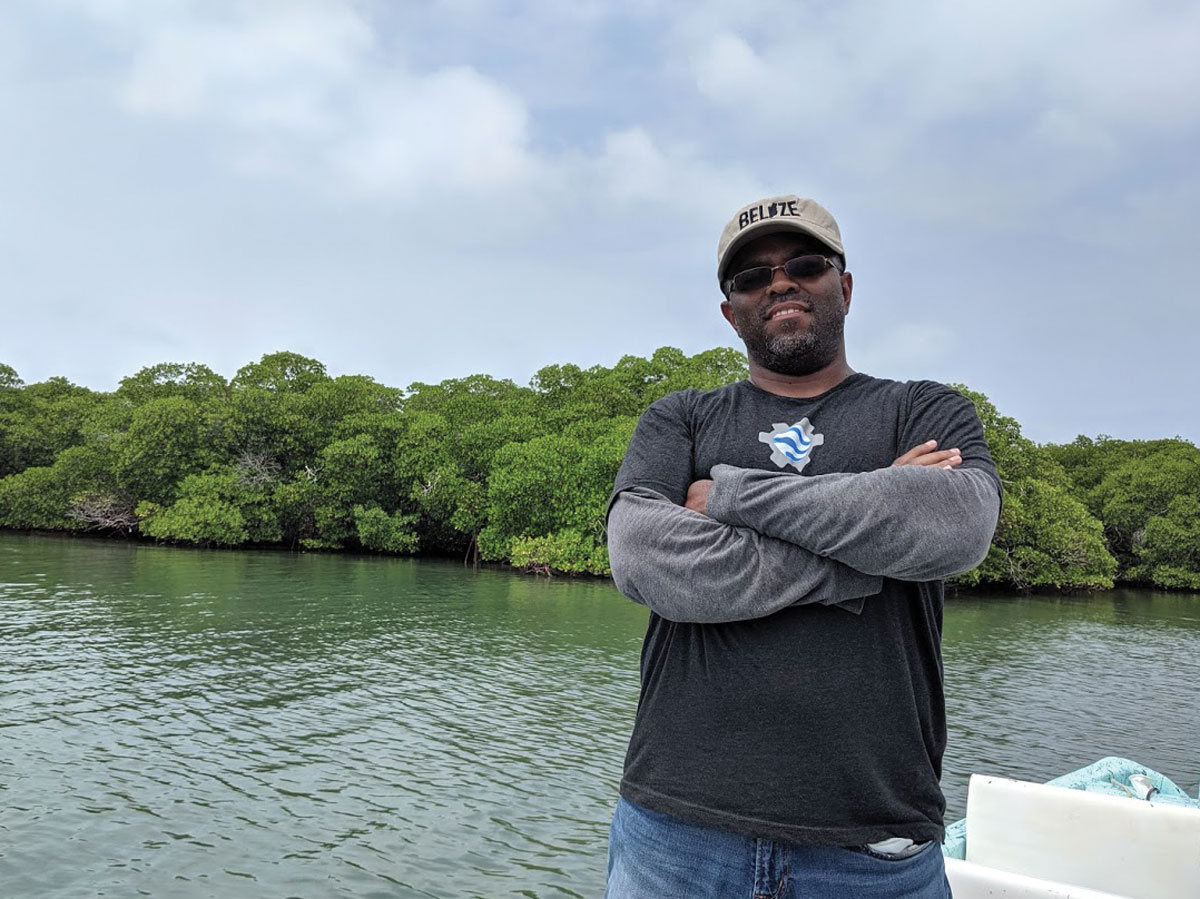Emil Cherrington was born in Belize at a time when there were few opportunities to pursue a science education in his country.
“When I was younger, I didn’t see many role models actively doing science, and so it was difficult for me to see how I could practice science in Belize,” Cherrington said. “I wanted to study science, but I wasn’t sure what would come after studying science, which itself at times felt like a pipe dream.”
When he was young, four of his mother’s seven siblings had pursued higher education in the United States. “In addition to my parents’ encouragement…their example also helped light the way for me,” Cherrington said. He recalled that his Aunt Carolyn was the first of his mother’s siblings to study abroad—she earned degrees in chemistry and biology and later a master’s in education—and had sparked his interest in science at an early age. “My aunt gave me my first computer—secondhand—an encyclopedia set, and a host of science books,” he said. “She encouraged me to study science, and I remember as a child, she would listen patiently to my questions about how things worked.”
He followed in his relatives’ footpaths and pursued higher education outside Belize, first studying biology at Loyola University Maryland in Baltimore and then earning a master’s in forest resources at the University of Washington (UW) in Seattle.
At UW, Cherrington’s research into the United States and Belize’s 2001 “debt-for-nature swap” was his first exposure to how Earth observation satellites can provide critical information that aids people on the ground and can also hold governments accountable to their environmental pledges.
“I consider myself extremely lucky to have gotten these scholarships, and at the same time I’ve also felt guilt because I know that there are so many deserving students and relatively few opportunities.”
Cherrington’s research brought him back to Belize as part of government environmental agencies and then led him to Panama to work for the Water Center for the Humid Tropics of Latin America and the Caribbean. In November 2006 and November 2008, he presented satellite images that tracked the severity of ongoing flooding in Panama to the then president and vice president of the country. Recommendations based on those images were used to inform nationwide alerts. “It was the first time that I had ever seen such high-level decisionmakers requesting satellite-derived information, and it left an impact on me,” he said. “It was impressive to see that the information we had provided was used to take concrete actions to try to protect life and property.”
After working outside academia for 9 years, Cherrington decided to pursue a joint Ph.D. in ecology and forest resources at AgroParisTech in France and the Technische Universität Dresden in Germany. “My entire university education was financed by scholarships,” he said. “I consider myself extremely lucky to have gotten these scholarships, and at the same time I’ve also felt guilt because I know that there are so many deserving students and relatively few opportunities.”
Cherrington is currently a research scientist at the Earth System Science Center at the University of Alabama in Huntsville and also serves as the regional science coordination lead for West Africa for the SERVIR program, a joint initiative of NASA, the U.S. Agency for International Development, and regional geospatial organizations around the world. The research agency Cherrington worked for in Panama was the first SERVIR global hub, so he has been working to bring critical satellite-based geospatial information to global communities for nearly 16 years.
“When I was in high school, I was told by some of my peers that I’d never get a scholarship to study abroad or that I was dreaming too big, because of my family’s modest means,” he said. “I hope that future generations—and fellow scientists—feel free to follow their dreams, in spite of the occasional naysayers.”
This profile is part of a special series in our August 2022 issue on science careers.
—Kimberly M. S. Cartier (@AstroKimCartier), Staff Writer


